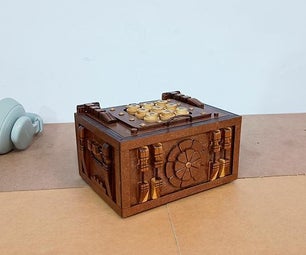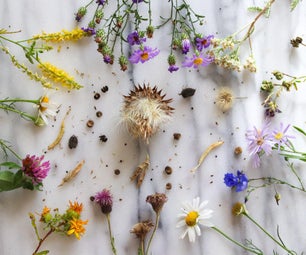Introduction: How I Feed My Houseplants Naturally With Worm Compost & Compost
I'm sharing with you my favorite way to feed my houseplants. Here's how I use worm compost & compost to nourish my indoor garden plus good things to know about how they work, when to do it & more.
Step 1: Why Not Feed Houseplants the Same Way?
I’ve been meaning to do this post for quite a long time now. I mention this topic in many of my houseplant posts and give a brief explanation following it up with “post and video coming soon.” There’s no time like the present so I want to share with you my favorite way to feed my indoor plants. Here’s how I use worm compost and compost for houseplants in my indoor and outdoor gardens.
Here’s my reasoning for nourishing my houseplants with this dynamic duo: this is how these plants get fed when growing in their natural environments. Many houseplants are native to sub-tropical and tropical environments and get their nourishment from plant matter falling from above. Compost is basically decomposed organic matter. And of course, earthworms also inhabit these areas and aerate and enrich the soil.
When talking about worm compost, I’m not referring to vermiculture and raising my own earthworms. I buy the worm compost (organic of course) in a bag from a local garden center. My houseplants seem to love it and are healthy and happy. The only houseplants I don’t use it for are my Lucky Bamboo and Lotus Bamboo which grow in water.
Step 2: When I Apply Worm Compost & Compost:
I have been applying them both once a year in spring. Next year I’m going to start doing an application in late February/early March (I’m in Tucson where the weather warms early) & then again in July.
How I apply the compost:
It depends on the size of the pot & plant. With 6″ & 8″ plants I apply a 1/4 – 1/2″ layer of worm compost & top that with a 1/2″ layer of compost. Easy does it – compost can burn houseplants if you apply too much. Floor plants get more depending on their size. For instance, my 5′ Schefflera amate in a 10″ grow pot got an inch layer of both worm compost & compost. Just water in & let the goodness begin!
Common questions regarding compost for houseplants:
Do worm compost & compost smell when applied indoors?
No. I buy both of them in a bag so there’s no odor. If I used them fresh out of bins in the backyard, there would be a smell. Even that should dissipate over time.
Can I use compost as potting soil?
No, you can’t. I always mix it in when repotting or transplanting & as a topdressing but it’s too strong to use as a straight mix.
Will worms hatch out of the soil if I apply worm compost?
No, don’t worry. Your home won’t be crawling with worms.
How do worm compost & compost work?
Both start to break down quickly but the effects are long-lasting. The roots are the foundation of your houseplants & both of these amendments help make the roots stronger & well nourished. This results in healthier houseplants.
Will my houseplants grow faster?
Honestly, I’m not sure how to answer this. My houseplants grow fairly fast because I live in a warmer, sunnier climate.
Are pets attracted to either worm compost or compost?
My kitties have no interest in either one of these. If your pet(s) is prone to digging in the soil of your houseplants, you might want to look for another way to feed them.
Step 3: Where to Buy Worm Compost and Regular Compost:
I buy both my worm compost & compost (both are organic) at local garden centers. In case you can’t find them where you live, here are online sources:
Worm Gold Worm Compost. This is the brand I’m currently using. This one is another good option.
I use Tank’s Compost which is produced & sold only in the Tucson area. Dr. Earth’s is an online option. My outdoor container plants get nourished with this combo and have for a long time. I use a greater ratio outdoors like 1″ of worm compost and 2-4″ of compost. It helps them better withstand the wickedly hot Sonoran Desert summers and it’s a fact that both help retain moisture. Do you feed your houseplants with worm compost and/or compost?
Happy gardening,
Nell Foster











